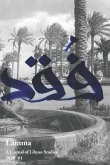20,99 €
inkl. MwSt.
Versandfertig in 2-4 Wochen

10 °P sammeln
- Broschiertes Buch
- Merkliste
- Auf die Merkliste
- Bewerten Bewerten
- Teilen
- Produkt teilen
- Produkterinnerung
- Produkterinnerung
Fully updated: the new edition of this compelling history begins in ancient times, takes us through the Qaddafi era, the Arab Spring and features a new chapter on post-Qaddafi Libya
Andere Kunden interessierten sich auch für
![Alamein Alamein]() Jon LatimerAlamein20,99 €
Jon LatimerAlamein20,99 €![The Libyan Revolution: Its Origins and Legacy: A Memoir and Assessment The Libyan Revolution: Its Origins and Legacy: A Memoir and Assessment]() Nicholas HaggerThe Libyan Revolution: Its Origins and Legacy: A Memoir and Assessment20,99 €
Nicholas HaggerThe Libyan Revolution: Its Origins and Legacy: A Memoir and Assessment20,99 €![Three Years in the Libyan Desert Three Years in the Libyan Desert]() J C Ewald FallsThree Years in the Libyan Desert28,99 €
J C Ewald FallsThree Years in the Libyan Desert28,99 €![Lamma: A Journal of Libyan Studies 1 Lamma: A Journal of Libyan Studies 1]() Adam BenkatoLamma: A Journal of Libyan Studies 119,99 €
Adam BenkatoLamma: A Journal of Libyan Studies 119,99 €![Ideology and Foreign Policy in Early Modern Europe (1650 1750) Ideology and Foreign Policy in Early Modern Europe (1650 1750)]() Ideology and Foreign Policy in Early Modern Europe (1650 1750)68,99 €
Ideology and Foreign Policy in Early Modern Europe (1650 1750)68,99 €![U.S. Policy Toward North Korea: Hearing Before the Subcommittee on East Asian and Pacific Affairs of the Committee on Foreign Relations, United States U.S. Policy Toward North Korea: Hearing Before the Subcommittee on East Asian and Pacific Affairs of the Committee on Foreign Relations, United States]() U.S. Policy Toward North Korea: Hearing Before the Subcommittee on East Asian and Pacific Affairs of the Committee on Foreign Relations, United States17,99 €
U.S. Policy Toward North Korea: Hearing Before the Subcommittee on East Asian and Pacific Affairs of the Committee on Foreign Relations, United States17,99 €![Trials and Triumphs: George Washington's Foreign Policy Trials and Triumphs: George Washington's Foreign Policy]() Frank T. ReuterTrials and Triumphs: George Washington's Foreign Policy18,99 €
Frank T. ReuterTrials and Triumphs: George Washington's Foreign Policy18,99 €-
-
-
Fully updated: the new edition of this compelling history begins in ancient times, takes us through the Qaddafi era, the Arab Spring and features a new chapter on post-Qaddafi Libya
Hinweis: Dieser Artikel kann nur an eine deutsche Lieferadresse ausgeliefert werden.
Hinweis: Dieser Artikel kann nur an eine deutsche Lieferadresse ausgeliefert werden.
Produktdetails
- Produktdetails
- Verlag: Oneworld Publications
- Seitenzahl: 432
- Erscheinungstermin: 12. Dezember 2017
- Englisch
- Abmessung: 198mm x 128mm x 35mm
- Gewicht: 398g
- ISBN-13: 9781786072405
- ISBN-10: 1786072408
- Artikelnr.: 48931541
- Herstellerkennzeichnung
- Libri GmbH
- Europaallee 1
- 36244 Bad Hersfeld
- gpsr@libri.de
- Verlag: Oneworld Publications
- Seitenzahl: 432
- Erscheinungstermin: 12. Dezember 2017
- Englisch
- Abmessung: 198mm x 128mm x 35mm
- Gewicht: 398g
- ISBN-13: 9781786072405
- ISBN-10: 1786072408
- Artikelnr.: 48931541
- Herstellerkennzeichnung
- Libri GmbH
- Europaallee 1
- 36244 Bad Hersfeld
- gpsr@libri.de
Ronald Bruce St John is an independent scholar who has appeared on Al Jazeera, BBC World Service, CNN News and in The New York Times, amongst other publications and outlets. He has also advised a number of Fortune 500 companies and the US government. He lives in Albuquerque, New Mexico.
Preface to Third Edition
Preface to Second Edition
Preface to First Edition
Maps and Illustrations
Note on Transliteration
Select Chronology of Libyan History
1 Early History
Historical Setting
Phoenician Settlements in Tripolitania
Greek Influence in Cyrenaica
Roman Influence in Libya
Arab Invasions
Fatimids (910–1171)
Hilalian Invasion
Almoravids, Almohads, and Hafsids in Tripolitania
Medieval Cyrenaica and Fezzan
Lasting Impressions
2 Ottoman Occupation, 1551–1911
First Ottoman Occupation (1551–1711)
Karamanli Dynasty (1711–1835)
Barbary Wars
Second Ottoman Occupation (1835–1911)
Sanusi Order
Foreign Schemes and Initiatives
Young Turk Revolution
Transformation
3 Italian Colonial Era, 1911–43
Misplaced Optimism
Early Resistance and Collaboration
Nascent Political Movements
Tripoli Republic, 1918–22
Riconquista, 1923–32
Italian Colonial Policy
Jewish Community
Impact of Italian Occupation
4 Struggle for Independence, 1943–51
Liberation and Occupation
Wartime Discussions
Great Power Gridlock
Regional and Domestic Politics Collide
American Strategic Interests
United Nations Decides
Arab Nationalism, Aid, and Base Rights
Conflicting Interests
5 United Kingdom of Libya, 1951–69
Socioeconomic Inheritance
Palace System of Power
Alliance Politics
Western Dependence
Impact of Oil
National Identity
Rise of Arab Nationalism
Monarchy in Perspective
The End
6 One September Revolution, 1969–73
Young Revolutionaries
Great Power Denouement
Primacy of Oil
Socioeconomic Change
Freedom, Nationalism, and Unity
Popular Revolution
Third Universal Theory
7 Revolution on the Move, 1973–86
The Green Book
Direct Popular Authority
Rush to Socialism
Hydrocarbon Policy
Confrontation with the West
Arab Disunity
Third Circle
Declining Influence Abroad
Confined to the Libyan Playhouse
8 Consolidation and Reform, 1986–98
Revolution within the Revolution
Great Green Charter on Human Rights in the Era of the Masses
Weapons of Mass Destruction
Lockerbie
European Relations
Status Quo in Africa
Turn to the Maghrib
Rule of International Law
Mounting Opposition
9 Libya Resurgent, 1998–2007
Out of Africa
Looking East and West
European Relations
War on Terror
Economic Reform
Hydrocarbons, the Exception
Social Conditions
Political Developments
Qaddafi’s Libya
10 A New Day Dawns, 2008–11
Socioeconomic Reform
Political Reform
Human Rights
Africa
Europe
United States
Arab Spring
February 17 Revolution
Military Events
Political Developments
End of the Beginning
11 Post-Qaddafi Libya
General National Congress Elections
Islamists Ascendant
Constitutional Drafting Process
Descent into Chaos
Libyan Political Agreement
Time for a Reset
Europe
United States
Arab World
Africa
Who Lost Libya?
Further Reading
Notes
Index
Preface to Second Edition
Preface to First Edition
Maps and Illustrations
Note on Transliteration
Select Chronology of Libyan History
1 Early History
Historical Setting
Phoenician Settlements in Tripolitania
Greek Influence in Cyrenaica
Roman Influence in Libya
Arab Invasions
Fatimids (910–1171)
Hilalian Invasion
Almoravids, Almohads, and Hafsids in Tripolitania
Medieval Cyrenaica and Fezzan
Lasting Impressions
2 Ottoman Occupation, 1551–1911
First Ottoman Occupation (1551–1711)
Karamanli Dynasty (1711–1835)
Barbary Wars
Second Ottoman Occupation (1835–1911)
Sanusi Order
Foreign Schemes and Initiatives
Young Turk Revolution
Transformation
3 Italian Colonial Era, 1911–43
Misplaced Optimism
Early Resistance and Collaboration
Nascent Political Movements
Tripoli Republic, 1918–22
Riconquista, 1923–32
Italian Colonial Policy
Jewish Community
Impact of Italian Occupation
4 Struggle for Independence, 1943–51
Liberation and Occupation
Wartime Discussions
Great Power Gridlock
Regional and Domestic Politics Collide
American Strategic Interests
United Nations Decides
Arab Nationalism, Aid, and Base Rights
Conflicting Interests
5 United Kingdom of Libya, 1951–69
Socioeconomic Inheritance
Palace System of Power
Alliance Politics
Western Dependence
Impact of Oil
National Identity
Rise of Arab Nationalism
Monarchy in Perspective
The End
6 One September Revolution, 1969–73
Young Revolutionaries
Great Power Denouement
Primacy of Oil
Socioeconomic Change
Freedom, Nationalism, and Unity
Popular Revolution
Third Universal Theory
7 Revolution on the Move, 1973–86
The Green Book
Direct Popular Authority
Rush to Socialism
Hydrocarbon Policy
Confrontation with the West
Arab Disunity
Third Circle
Declining Influence Abroad
Confined to the Libyan Playhouse
8 Consolidation and Reform, 1986–98
Revolution within the Revolution
Great Green Charter on Human Rights in the Era of the Masses
Weapons of Mass Destruction
Lockerbie
European Relations
Status Quo in Africa
Turn to the Maghrib
Rule of International Law
Mounting Opposition
9 Libya Resurgent, 1998–2007
Out of Africa
Looking East and West
European Relations
War on Terror
Economic Reform
Hydrocarbons, the Exception
Social Conditions
Political Developments
Qaddafi’s Libya
10 A New Day Dawns, 2008–11
Socioeconomic Reform
Political Reform
Human Rights
Africa
Europe
United States
Arab Spring
February 17 Revolution
Military Events
Political Developments
End of the Beginning
11 Post-Qaddafi Libya
General National Congress Elections
Islamists Ascendant
Constitutional Drafting Process
Descent into Chaos
Libyan Political Agreement
Time for a Reset
Europe
United States
Arab World
Africa
Who Lost Libya?
Further Reading
Notes
Index
1 Introduction 2 State Formation 3 Politics 4 Economics 5 International Relations 6 Conclusions
Preface to Third Edition
Preface to Second Edition
Preface to First Edition
Maps and Illustrations
Note on Transliteration
Select Chronology of Libyan History
1 Early History
Historical Setting
Phoenician Settlements in Tripolitania
Greek Influence in Cyrenaica
Roman Influence in Libya
Arab Invasions
Fatimids (910–1171)
Hilalian Invasion
Almoravids, Almohads, and Hafsids in Tripolitania
Medieval Cyrenaica and Fezzan
Lasting Impressions
2 Ottoman Occupation, 1551–1911
First Ottoman Occupation (1551–1711)
Karamanli Dynasty (1711–1835)
Barbary Wars
Second Ottoman Occupation (1835–1911)
Sanusi Order
Foreign Schemes and Initiatives
Young Turk Revolution
Transformation
3 Italian Colonial Era, 1911–43
Misplaced Optimism
Early Resistance and Collaboration
Nascent Political Movements
Tripoli Republic, 1918–22
Riconquista, 1923–32
Italian Colonial Policy
Jewish Community
Impact of Italian Occupation
4 Struggle for Independence, 1943–51
Liberation and Occupation
Wartime Discussions
Great Power Gridlock
Regional and Domestic Politics Collide
American Strategic Interests
United Nations Decides
Arab Nationalism, Aid, and Base Rights
Conflicting Interests
5 United Kingdom of Libya, 1951–69
Socioeconomic Inheritance
Palace System of Power
Alliance Politics
Western Dependence
Impact of Oil
National Identity
Rise of Arab Nationalism
Monarchy in Perspective
The End
6 One September Revolution, 1969–73
Young Revolutionaries
Great Power Denouement
Primacy of Oil
Socioeconomic Change
Freedom, Nationalism, and Unity
Popular Revolution
Third Universal Theory
7 Revolution on the Move, 1973–86
The Green Book
Direct Popular Authority
Rush to Socialism
Hydrocarbon Policy
Confrontation with the West
Arab Disunity
Third Circle
Declining Influence Abroad
Confined to the Libyan Playhouse
8 Consolidation and Reform, 1986–98
Revolution within the Revolution
Great Green Charter on Human Rights in the Era of the Masses
Weapons of Mass Destruction
Lockerbie
European Relations
Status Quo in Africa
Turn to the Maghrib
Rule of International Law
Mounting Opposition
9 Libya Resurgent, 1998–2007
Out of Africa
Looking East and West
European Relations
War on Terror
Economic Reform
Hydrocarbons, the Exception
Social Conditions
Political Developments
Qaddafi’s Libya
10 A New Day Dawns, 2008–11
Socioeconomic Reform
Political Reform
Human Rights
Africa
Europe
United States
Arab Spring
February 17 Revolution
Military Events
Political Developments
End of the Beginning
11 Post-Qaddafi Libya
General National Congress Elections
Islamists Ascendant
Constitutional Drafting Process
Descent into Chaos
Libyan Political Agreement
Time for a Reset
Europe
United States
Arab World
Africa
Who Lost Libya?
Further Reading
Notes
Index
Preface to Second Edition
Preface to First Edition
Maps and Illustrations
Note on Transliteration
Select Chronology of Libyan History
1 Early History
Historical Setting
Phoenician Settlements in Tripolitania
Greek Influence in Cyrenaica
Roman Influence in Libya
Arab Invasions
Fatimids (910–1171)
Hilalian Invasion
Almoravids, Almohads, and Hafsids in Tripolitania
Medieval Cyrenaica and Fezzan
Lasting Impressions
2 Ottoman Occupation, 1551–1911
First Ottoman Occupation (1551–1711)
Karamanli Dynasty (1711–1835)
Barbary Wars
Second Ottoman Occupation (1835–1911)
Sanusi Order
Foreign Schemes and Initiatives
Young Turk Revolution
Transformation
3 Italian Colonial Era, 1911–43
Misplaced Optimism
Early Resistance and Collaboration
Nascent Political Movements
Tripoli Republic, 1918–22
Riconquista, 1923–32
Italian Colonial Policy
Jewish Community
Impact of Italian Occupation
4 Struggle for Independence, 1943–51
Liberation and Occupation
Wartime Discussions
Great Power Gridlock
Regional and Domestic Politics Collide
American Strategic Interests
United Nations Decides
Arab Nationalism, Aid, and Base Rights
Conflicting Interests
5 United Kingdom of Libya, 1951–69
Socioeconomic Inheritance
Palace System of Power
Alliance Politics
Western Dependence
Impact of Oil
National Identity
Rise of Arab Nationalism
Monarchy in Perspective
The End
6 One September Revolution, 1969–73
Young Revolutionaries
Great Power Denouement
Primacy of Oil
Socioeconomic Change
Freedom, Nationalism, and Unity
Popular Revolution
Third Universal Theory
7 Revolution on the Move, 1973–86
The Green Book
Direct Popular Authority
Rush to Socialism
Hydrocarbon Policy
Confrontation with the West
Arab Disunity
Third Circle
Declining Influence Abroad
Confined to the Libyan Playhouse
8 Consolidation and Reform, 1986–98
Revolution within the Revolution
Great Green Charter on Human Rights in the Era of the Masses
Weapons of Mass Destruction
Lockerbie
European Relations
Status Quo in Africa
Turn to the Maghrib
Rule of International Law
Mounting Opposition
9 Libya Resurgent, 1998–2007
Out of Africa
Looking East and West
European Relations
War on Terror
Economic Reform
Hydrocarbons, the Exception
Social Conditions
Political Developments
Qaddafi’s Libya
10 A New Day Dawns, 2008–11
Socioeconomic Reform
Political Reform
Human Rights
Africa
Europe
United States
Arab Spring
February 17 Revolution
Military Events
Political Developments
End of the Beginning
11 Post-Qaddafi Libya
General National Congress Elections
Islamists Ascendant
Constitutional Drafting Process
Descent into Chaos
Libyan Political Agreement
Time for a Reset
Europe
United States
Arab World
Africa
Who Lost Libya?
Further Reading
Notes
Index
1 Introduction 2 State Formation 3 Politics 4 Economics 5 International Relations 6 Conclusions







